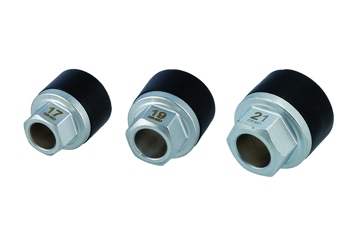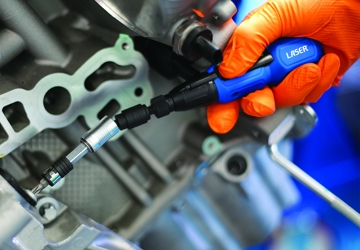

Fiat Chrysler Automobiles (FCA) and Henkel worked together for almost three years to develop new treatment processes applied to the latest version of the Alfa Romeo Giulia.
Lighter car bodies manufactured from mixed steel and lighter metals like aluminium are requiring new approaches to surface treatments. Processes and procedures are changing significantly as new materials and application technologies are launched.
The new Giulia has a body that is 90kg lighter than a comparable all-steel body. This was achieved by the use of light metals in combination with new process materials and application technologies. To reduce weight and improve performance, FCA is using aluminium to account for 45% of car body weight. It has also adopted a ground breaking acoustic package to enhance passenger comfort while saving more weight.
The Bonderite two-step metal pre-treatment process was developed by Henkel for multi-metal bodies with very high aluminium contents (up to 80%), providing superior corrosion performance while reducing investment and processing costs. The dip-coating process uses zinc phosphate in the first step to treat the steel, followed by aluminium treatment in the post rinse.
“Aluminium can be eaten up by the acids normally used to phosphate steel, so there is a need to find a balance in the treatment process,” says Manfred Holzmueller, sales director, transplant OEM business at Henkel. “Corrosion performance is equal to tri-cationic Zn-Phosphate, but the Bonderite process generates 30 - 50% less sludge, consumes fewer chemicals, and creates less surface roughness that demands rework. Lower operating temperature also saves energy.”
The Alfa Romeo Giulia also makes use of Henkel’s TEROSON high expansion pillar fillers. These are mouldings made from a special foaming elastomer that are inserted into cavities in the car body – in the A-pillars for example – during assembly in the body shop. When the body passes through the e-coat oven, the high temperatures cause the mouldings to expand to up to ten times their original volume, completely filling and sealing the cavity. This prevents any air entering into the cavity while the vehicle is in motion, and eliminates any wind noise that would otherwise result.
A second product applied to the car body - TEROSON AL7154 - is a liquid spray-applied acrylic waterborne sound deadener (LASD) developed to reduce noise generation in the passenger compartment. During extensive tests at FCA, this product showed the highest loss factor (a measure of the damping properties) of all candidate materials. The total weight of TEROSON AL7154 on the Giulia is over 10% less than standard bitumen pads, which would have provided a lower level of acoustic insulation. A further advantage says Henkel, is that it can be applied robotically, without the need for any human intervention at all - this could have an impact not only in terms of costs, but also in terms of health and safety.
The Alfa Romeo Giulia was the first new car to make use of TEROSON AL7154. Two other vehicles made by FCA on the same line – the company’s first SUV, the Stelvio, as well as the existing Giulietta (in a running change) – have also since adopted the product.
Also developed for fully robotic application on the Giulia is TEROSON PV3414, a new interior and exterior seam sealer concept. Henkel believes it enables higher application speed, better sealing, better appearance, less dripping and significantly less manual touch-up work. Alfa Romeo is again the first to adopt this system, which is based on a PVC plastisol.
According to Holzmueller, “the new Cassino paint shop is providing FCA with a change in quality for its vehicles. The company now uses the most modern paint shop technology for the production of high-class vehicles. We believe that the innovative spirit at Henkel is clearly on show in the new Giulia. We are facilitating weight reduction through the use of lighter metals, and we are helping our customer cut costs and improve sustainability by using fully automated application systems and reducing waste by avoiding sludge and overspray in the processes.
Furthermore, we are reducing the need for cleaning and maintenance. FCA has taken a major step forward with the simultaneous implementation of numerous new technologies and processes for the new Alfa Romeo Giulia. Very close and intensive cooperation between our two companies was essential, and I am happy that it has resulted in such a beautiful new car!”

Will joined Fastener + Fixing Magazine in 2007 and over the last 12 years has experienced every facet of the fastener sector – interviewing key figures within the industry and visiting leading companies and exhibitions around the globe. Will manages the content strategy across all platforms and is the guardian for the high editorial standards that the brand is renowned.





